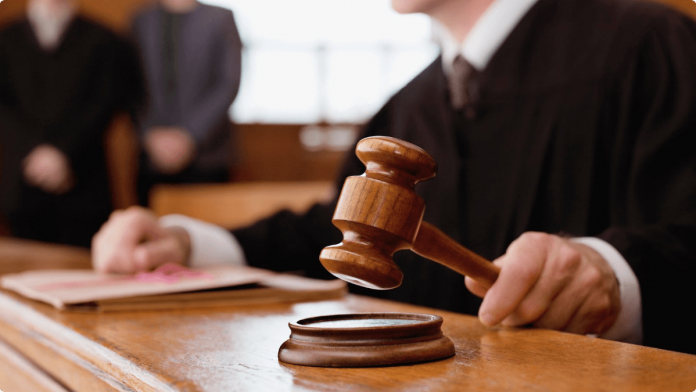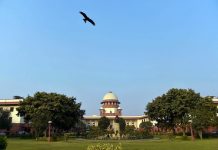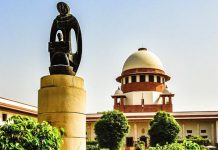This article is written by Ms. Somya Jain, from the Vivekananda Institute of Professional Studies. The article has established the need for a judge to obtain special knowledge on non-legal matters in dispute before the courts. It has enumerated the importance of judicial ethics in accordance with learning on specialised matters along with the limits on acquiring such knowledge.
Table of Contents
Introduction
The paradigm shift in the role of the judiciary in imparting justice from merely legal matters to other scientific matters has been greatly observed in recent times. Although the intervention of courts in the field of medicine is not a novelty, in the present period it has increased dramatically. In contemporary society, numerous cases emerge dealing with non-legal matters and the judges are often faced with the dilemma of factual analysis of the case at hand. This raises the question of whether the judges, who lack relevant expertise in such fields, should possess special knowledge or proficiency in these matters? Further, what are the limits and scope of acquiring knowledge in these special areas?
To dispense proper and fair judgments in matters relating to special areas, the need to comprehend and appraise the facts of the case is essential. For this, special knowledge becomes all the more necessary to be able to apply it judiciously to the case at hand and interpret the laws accordingly. Does this mean that the judges should be imparted with relevant education to handle special cases like medical disputes?
Judicial ethics in non-legal knowledge
The duty of judges has been time and again extended to include delving into the essence of the matter and the given facts of the case. Diligence and competency are some of the most acknowledged criteria for rendering the due performance of the judicial officer. This requires the judges to be proficient in professional knowledge. It includes a considerable amount of knowledge on non-legal matters as well which the judges may handle in their tenure. It cannot be denied that apart from knowing the statutes or the underlying principles in the case at hand, the judges should acquire the ability to understand the backdrop of the reality of facts incorporated in a matter. In the landmark case of M Siddiq (D) Thr Lrs v. Mahant Suresh Das & Ors. (2019), popularly known as the “Ayodhya Dispute case”, the judges apart from construing upon the relative statutes relied mostly on the background and the sentiments of the parties to the case. The judgment was based on the beliefs of the people and the evidence available before the judges for interpretation. After perusing the matter deeply, in accordance with the facts and circumstances, the decision of granting the entire disputed land to the deity Ram Lalla was imparted.
As far as the need for judges to incorporate non-legal knowledge on a subject matter is concerned, judicial ethics form the basis for the same. Judicial ethics comprise the moral code and conduct of the judges along with the values to be upheld by them. In India, judicial ethics is not found in any codes as such but it has been followed by the judiciary from the following three documents, namely- the Restatement of Values of Judicial Life adopted by the Chief Justices’ Conference of India, 1999, the Bangalore Principles of Judicial Conduct, 2002, and, the Oath of a Judge, as contained in the Third Schedule of the Constitution of India.
According to the commentary of the Bangalore Principles of Judicial Conduct, a judge shall take reasonable steps to maintain and enhance his knowledge, skills and personal qualities necessary for the proper performance of judicial duties, taking advantage for this purpose of the training and other facilities which should be made available, under judicial control, to judges. The judges should be trained to apply their knowledge to the disputes. Such training not only includes techniques to be followed by the judges in handling cases but should also consider the need for an extensive understanding of different subject matter in a case. One such case is S Sushma v Commissioner of Police (2021), where the Court headed by Justice Venkatesh observed that ignorance is no justification for normalising any form of discrimination. While recording the lack of knowledge on the LGBTQIA+ community, Justice Venkatesh went on to educate himself by the psychologists and members of the Trans community on the same so that justice could be served. It is essential for a prudent judge to make a reasoned decision by consolidating the legal interpretations along with the subject matter knowledge while imparting justice.
The Right to a fair trial is another measure that underlines the need for a judge to educate himself on the special matter concerning the dispute. Article 14 of the International Covenant on Civil and Political Rights, Article 10 of the Universal Declaration of Human Rights and Article 21 of the Indian Constitution establishes the concept of the right to a fair trial. The said right provides an opportunity for the parties to present their case to an independent and impartial tribunal. It further encourages the accused to present his case without any prejudice or bias thus safeguarding his rights. The right to a fair trial also enunciates the need for judges to delve deeper into the matter to impart reasoned judgements based on construed facts.
The underlying problems due to lack of relevant knowledge in special matters
There are often grey areas that are prevalent in disputes of special matters such as medical treatment, academic activity, finances and accounting, engineering, etc. The judges interpret the prima facie facts to render judgements but fail to occlude the gaps created by non-adherence of the knowledge related to the field. This results in several problems while delivering sound judgments. Like if there is any dispute about the novelty of scientific discovery, it requires the judge to peruse the science behind such inventions and a lack of knowledge in such a field would render the entire judgment bad.
Generally, the judges relying on their “special legal knowledge”, fail to comprehend the intrinsic facts of a case which in turn renders the judgement bad. Often judges are faced with questions pertaining to the scope of non-legal matters in a dispute that cannot be answered without the basic knowledge of the topic. As a result, judges end up interpreting the facts in accordance with the laws that are far from the realities of the scientific question prevalent in the case.
The judgment thereby lacks objectivity, fairness and imputation of justice. Recently, one of the most controversial judgments given by the Bombay High Court raised many unanswered questions on the efficiency of the justice imparted by the judiciary. In Satish v. State of Maharashtra (2020), the single-judge bench of Justice Pushpa Ganediwala gave a verdict wherein the observation was made by the Court that the act of pressing of breast of the child aged 12 years, in the absence of any specific detail as to whether the top was removed or whether he inserted his hand inside top and pressed her breast, would not fall in the definition of ‘sexual assault’ under the Protection of Children from Sexual Offences Act, 2012. The Court interpreted that Sections 7 and 8 of the POCSO Act will only be applicable when there would be groping or sexual assault through skin-to-skin contact. The Supreme Court, considering the aggravating factors in the judgment, stayed the order of the Bombay Court declaring it a bad judgment. It lacked objectivity and fairness.
When struck with scientific matters in a case, the judges instead of acting as a “gatekeeper” to safeguard the scientific evidence and facts in a court, end up being positioned as opposers to the relevant non-legal facts. In matters such as these, the parties tend to take up emotional arguments rather than legal arguments which fail to find their place in the eyes of the sitting judge. People question the integrity of the judiciary to merely impart justice and not ensure that justice is done. The case of Bombay High Court on the POCSO Act was one such judgment that brought much dissent in the fraternity. The belief of the people in the judiciary took a serious hit when the judgment was imparted as it was merely given in the name of justice and no actual justice was done.
Further, the individual opinions of the judge may significantly deviate the judgement from a lawful or a grounded decision. For example, a judge who is against euthanasia may present the reasons for not granting one or establishing the facts accordingly. This violates the right to fair and impartial trial as personal views act prejudicially to the interest of the parties.
Limits of acquiring knowledge on special matters
Now an essential question arises as to what should be the limit for obtaining special knowledge or education in a particular field? Do judges need to have knowledge relating to every field in society?
It is obligatory for a judge to comply with the rule of law by delivering reasoned and grounded judgement. Thereby, the judges often incorporate a “free will assessment” policy whereby they establish and interpret certain facts according to their internal beliefs based on objective evaluation. Prior to forming any opinion on the matter, it is essential for a judge to evaluate the evidence presented by the parties in a conscientious manner. Failure to do so, a reasoned and well-articulated decision cannot be delivered. Further, to form such an examined opinion it is necessary for a judge to analyse the non-legal facts as well. It is ethical for a judge to create a map of circumstances before delivering any judgement. A judge who is well-versed with the facts of the scientific field can surely have greater access to a more grounded decision as compared to a judge who solely relies on the arguments and evidence established by the parties in non-legal matters.
It is impossible for a judge to incorporate the entire knowledge of the field. It is also unrealistic to expect a judge to possess greater information on scientific areas as compared to a professional in that particular field. Additionally, it will be disproportional for a judicial officer to obtain a considerable degree of qualification in all the possible fields arising in disputes i.e. to collect knowledge ex-ante. This means that the judges should assimilate such knowledge and information on a case to case basis. They should strive to create a possible road of evidence and circumstances before discharging their judgements.
Although it is recommended to objectively form an opinion on the non-legal dispute, it nowhere allows the judges to fill the gaps formed as a result of lack of evidence. Our judiciary is based on the principle of impartiality and fair proceedings and it disallows the judges to fill gaps created due to lack of evidence or arguments. Judicial activism should not hinder an ideal adversarial trial. This will not prevent a judge from making the parties aware of the deficiency in their arguments.
As such, there is no ceiling for learning non-legal concepts. It depends on the judge as to what amount of knowledge is required for objective reasoning of the evidence and the circumstances. He should make the best efforts to interpret his knowledge on scientific matters in accordance with the facts presented. Suitable questions should be raised in the minds of the judges that would appreciate the dispute.
Measures for obtaining knowledge on different subject matters
There are various measures by which a judge can acquire the essential information regarding a scientific area disputed in a matter.
Code of Conduct
Every scientific field is enriched with certain codes of standard and practice, user manuals and guidelines establishing technical support. These sources may enable the judicial officers to learn about the new areas of technical fields. Apart from these, there is a wide range of free accessible data ready to be used. But the judges should be careful as a certain level of skepticism and stance is essential while applying the same.
Expert opinion
Time and again courts have been faced with the dilemma related to non-legal matters that require specialised knowledge. In such cases, the court finds it imperative to hire an expert proficient in his field who would guide the court with the technicalities of the matter. Expert opinion terminates the paucity faced by the judge in rendering a detailed judgement. It is viewed as imparting justice and fair trial at the instance of the parties. Expert opinion can be taken on certain financial, scientific, medical, artistic or other issues. Like, Section 45 of the Indian Evidence Act 1872, recognises the expert opinion having relevance in Indian courts. According to this Section, a person who is skilled and has special knowledge of foreign law, science and art, identification of handwriting and finger impression and electronic evidence, then opinions of such people will be considered relevant facts by the court and any facts which are supporting or are inconsistent with these opinions will be construed in accordance to the opinion itself. There are several cases whereby the judges rely on expert opinions. Like while conducting a postmortem, the opinion related to the cause of death by the forensic expert is considered by the judges.
Furthermore, handwriting experts help distinguish the writing of the person concerned for enumerating the essentials of the document. Further, in the landmark judgment of Navtej Singh Johar v. Union of India (2018), the judges considered the necessity to understand the psychology behind the attraction towards the same sex or opposite sex. For this various psychologist experts on the matter were called to share their opinions on the same. This made the decision of the court more realistic and grounded.
Although the role of experts in providing opinions on the matter in dispute is treated significantly, it should not prevent the parties from raising their concerns regarding the nature of impartiality and lack of competence in the suitable field of knowledge. Further, the experts should disclose all the material information and reassure the court of their impartiality and independence. The courts are not bound by the opinions given by the experts and can diverge from the same on reasonable grounds.
Special courts
Another important measure could be the establishment of separate courts in the legal arena which would deal with specific areas. India has largely adopted this measure as various courts dealing with independent matters have been instituted like distinct courts for matters related to companies, environmental law, family law, insolvency disputes, stock exchange matters, foreign exchange matters etc. It provides for the creation of separate tribunals or courts for specific matters.
The formation of separate courts or tribunals was initially foreseen to dispose of the matter speedily, more effectively and in a decentralised manner. But with the growth of the legal industry, the tribunals were enhanced to deal with the specialised matter and expanded their scope to serve the purpose of expertise and knowledge in specialised areas that was felt to be lacking in the judges of traditional Courts. As per the Statement of Objects and Reasons of The Constitution (Forty-Second Amendment) Act, 1976, revenue matters and certain other matters of special importance should be dealt with separate courts or tribunals dealing with specific matters. Therefore, one of the reasons for establishing tribunals was to consider the need to appoint special expertise and experience or possessing specialised qualifications to handle special disputes.
In the case of M.C. Mehta v. Union of India (1986), the Supreme Court observed that environmental cases require the analysis of scientific data and thereby it is desirable to set up dedicated environment courts at a regional level with a Judge and two experts, keeping in view the expertise required for such adjudication. According to the Choksi Committee 1977, “Special Tax Bench”, consisting of judges having special knowledge of the subject in such cases, should be established to specifically deal with tax matters. Therefore, several tribunals dealing with specific matters are formulated across India.
Conclusion
Judiciary is governed by the ethical conduct of the judges which involves diligence and impartiality. They have been given the status of “gatekeeper of justice” and it should be observed in a most meticulous manner. Added to this, a fair trial should ensure the delivery of a well-articulated, grounded and reasoned decision, based on objective evaluation. For this, it is essential for a judge to incorporate a certain standard of knowledge on technical matters of non-legal nature. Such knowledge will enable the judge to interpret the circumstances and dispute at hand in a more diligent manner. But there is no universal rule on the limit to acquire such knowledge.
It is based on the curiosity of the judge and the application and scope of the matter at hand. There are various sources available to obtain knowledge pertaining to a specific field. Hiring an expert is considered to be one of the most reliable sources even though the courts are not bound by the opinions of such experts. The judges hold the faith of people to provide them with justice and therefore adherence to the principles of ethical conduct of the judicature should be complied with.
References
- WP – TH 2018 04 -TEAM LT.pdf (ejtn.eu)
- Judicial ethics: An Indian perspective – The Daily Guardian
- Microsoft Word – J. Kumar RIGHT TO FAIR TRIAL (nja.nic.in)
- Canons of Jud Ethics.pdf (tn.gov.in)
- Expert opinion and its relevancy – Indian Legal Solution
- Report272.pdf (lawcommissionofindia.nic.in)
LawSikho has created a telegram group for exchanging legal knowledge, referrals, and various opportunities. You can click on this link and join:
 Serato DJ Crack 2025Serato DJ PRO Crack
Serato DJ Crack 2025Serato DJ PRO Crack











 Allow notifications
Allow notifications


